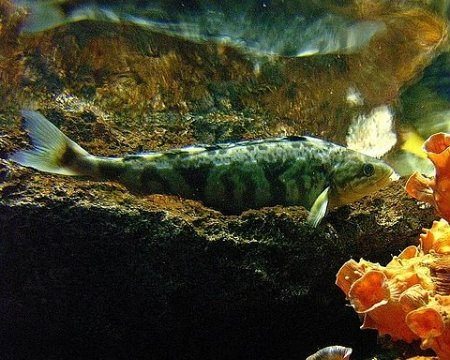Radioactive Fish Caught Near Fukushima
A fish caught near the Fukushima No. 1 nuclear power plant last month now officially holds the dubious honor of being the world's most radioactive marine life ever tested, according to the Tokyo Electric Power Co., which owns the plant and has been testing marine life in the area.
The greenling, a bottom-dwelling fish that the Asahi Shimbun says is a delicacy in Japanese cuisine, had radioactive cesium at 7,400 times the maximum amount considered safe for human consumption by the Japanese government.
Most fish near Fukushima are banned from going to market over fears of radiation contamination since the plant was damaged in the March 11, 2011, earthquake and tsunami and spilled radiation into the surrounding water.
According to RT News, some experts think that radioactive water might still be seeping into the ocean from the nuclear power plant. Another greenling in the vicinity of the plant tested as having a concentration of 510,000 becquerels of radioactive cesium per kilogram, or 5,100 times the legal limit, and a bluefin tuna caught off the coast of California tested positive for radiation in February.
